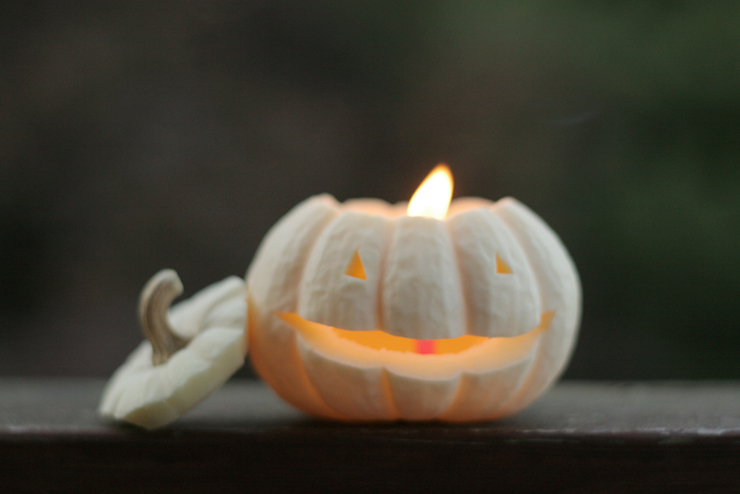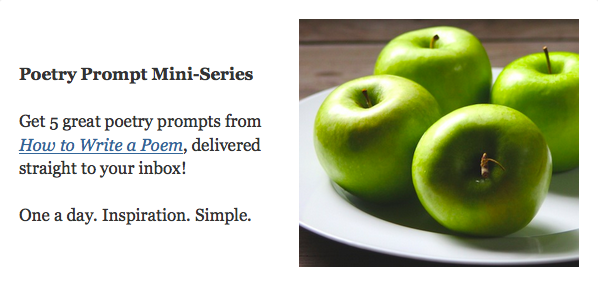Halloween is the perfect time to explore a little bit of the monster in all of us. Poetry using monsters has been an important part of the literary genre of speculative poetry. Beowulf, for example, is considered by many to be one of the most important works of Old English literature. The poem, set in Scandinavia, begins with the hero Beowulf coming to the aid of Hrothgar, whose mead hall has been plagued by a monster. Grendel, a monster who is supposed to be descended from Cain, the biblical son of Adam and Eve, regularly descends on the celebrations held at the mead hall. The sounds of cheer pain Grendel, as it is a joy he cannot share and he goes to destroy everything and everyone within the mead hall. He is quickly defeated by the heroic Beowulf, who goes on to defeat Grendel’s Mother, and a dragon.
We can often learn about our culture and ourselves through the lens of literary monsters; they enable us to view humanity by examining a representation of our fears. Poetry provides an opportunity to create some interesting monsters, even evoke sympathy towards the monster. What causes the monster to behave this way? What does the monster represent?
Another example is the tragic monster in John Keats’ poem, Lamia. She performs a favor for the god, Hermes, bargains with him and is granted human form. She quickly falls in love with a man and for a brief time passes as just another human being, loved and in love. On her wedding day, however, she is revealed as a monster, and her human form melts away before the wedding guests and her beloved bridegroom to expose her hideous serpentine shape. Whatever favor she earned from Hermes has vanished and she can no longer exist as a monster in a human world. In deep despair and anguish, she screams and disappears.
Keats’ description of Lamia:
She was a gordian shape of dazzling hue,
Vermilion-spotted, golden, green, and blue;
Striped like a zebra, freckled like a pard,
Eyed like a peacock, and all crimson barr’d;
And full of silver moons, that, as she breathed,
Dissolv’d, or brighter shone, or interwreathed
Their lustres with the gloomier tapestries –
So rainbow-sided, touch’d with miseries,
She seem’d, at once, some penanced lady elf,
Some demon’s mistress, or the demon’s self.
Upon her crest she wore a wannish fire
Sprinkled with stars, like Ariadne’s tiar:
Her head was serpent, but ah, bitter-sweet!
She had a woman’s mouth with all its pearls complete:
And for her eyes: what could such eyes do there
But weep, and weep, that they were born so fair?
As Proserpine still weeps for her Sicilian air.
Her throat was serpent, but the words she spake
Came, as through bubbling honey, for Love’s sake,
And thus; while Hermes on his pinions lay,
Like a stoop’d falcon ere he takes his prey.
Not all monsters are hideous, however. Take a look at this cute steam punk monster going trick-or-treating! (Compliments of video makers Sonia and Sara Barkat.)
Try It: Monster Poetry
What kind of sympathetic monster can you fashion? Write a poem about a monster of your own creation. Is it destructive or simply hideous? What is your monster’s motivation, if any? Why does is look the way it does? Will your monster be defeated in the end?
Click to get FREE 5-Prompt Mini-Series
Thanks to everyone who participated in last week’s poetry prompt. Here is a shadow acrostic poem from Andrew we enjoyed:
She sings such lovely, happy songs,
Heaven itself, with cause, has wept
And caused the vaults of sky to pour
Dreaming of spring time, and my beau
Outside beneath the glowing of the Zodiac
Where all of nature may with love be struck.
Oh, opposite of evil, whose presence here did rob
Fickleness from out my clouded sky!
Leave nothing but that song, that ever-reaching high,
Orchestrated glory given to
Velvet notes that come, full formed, from off your lip!
Each day, would it were so, would thus be lived with ease.
—by Andrew
Photo by Alice Carrier, Creative Commons via Flickr.
Browse more writing prompts
Browse poetry teaching resources

“How to Write a Poem is a classroom must-have.”
—Callie Feyen, English Teacher, Maryland
- Poetry Prompt: Misunderstood Lion - March 19, 2018
- Animate: Lions & Lambs Poetry Prompt - March 12, 2018
- Poetry Prompt: Behind the Velvet Rope - February 26, 2018


Rick Maxson says
Beast
—for Godzilla
Under the dark tree
trimmed with death masks
of locusts, we played:
crushing the anthills,
descending from black root mountains,
rising from curb lagoons or seas,
to feed upon the villagers.
I have changed my ways:
I ride the uptown bus or
watch your mirrored eyes shift,
from my old Subaru.
I am still feared,
seated and gray, in the isle floor,
reading between Bellow and Camus,
not quite your dream,
stark and serpentine,
from closets or your empty rooms,
touching you in sleep.
Yet, look at me,
when you pass, last row
as the credits roll,
who ascended once on scaled wings
head drawn bellowing back.
Understand why I am last to go
(the achievement is the least),
nor because New York was spared,
but because I loved the beast.
L.L. Barkat says
I love this poem, Rick. For so many reasons.
This section is particularly deep feeling:
“Under the dark tree
trimmed with death masks
of locusts, we played”
Rick Maxson says
Thank you.
I recently watched the 1998 version with Matthew Broderick and Jean Reno (one of my favorite actors, discovered in the marvelous movie, “The Professional” by Luc Besson with the debut of an 11 year old actress, Natalie Portman). The ending of Besson’s Godzilla was done with such empathy, I could not help but love this beast who found herself where she was not at home.
Luc Besson is a director of amazing depth of feeling for portraying the lives of beings who find themselves thrust into places and situations alien to their nature, as witnessed in his genius treatment of the Planet of the Apes saga. Other, previous versions of those stories were disastrous to say the least.
Christina Hubbard says
Rick, I like those lines L.L. pointed out too, as well as your ending line about loving the beast. Great work!
I’ve been reading Lillith by George MacDonald, which turned out to be quite a phantasmagoric theological tale with plenty of frightening beasts. It coincides well with this weeks’ prompt.
Lillith
Mystics said she could not be saved,
But MacDonald resurrected the she-monster.
White, muffled Mara sent the hellish fire of self-knowing
Into the vampire-princess’ body, withered to near
Nothingness.
She fought all knowledge in hopes of forgetting
Her own sweet child she dashed down upon marble.
Preferring her own beauty,
She wrecked the world.
A paralyzed hand, the only thing she could not open
To cold seeping into marrow and tomb.
Such a one could not, should not,
be given
Second chances.
But awaring misery turned her
To ask the Father
To slay hand with sword.
Her appendage I buried in the sands,
Which brought forth a river
To resurrection.
The demonness wakes from cryptic couch,
Steps o’er the threshold,
And walks forth
To live truly alive.
She sits down with us
At a banquet of bread and wine,
And smiles at all the once-horrors,
Now thriving,
Soul-faces lit
With the lamp which carried us to quiet deaths.